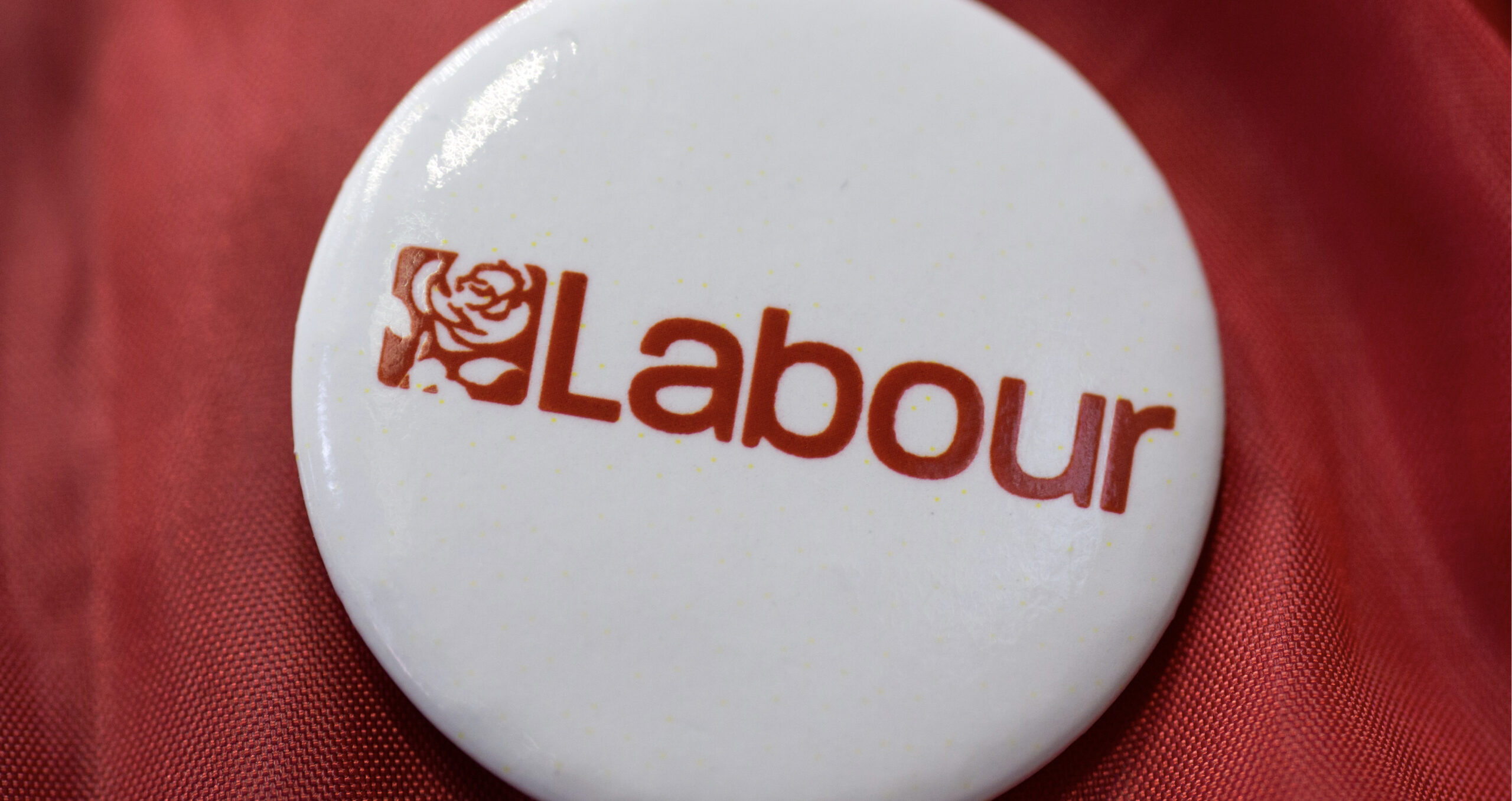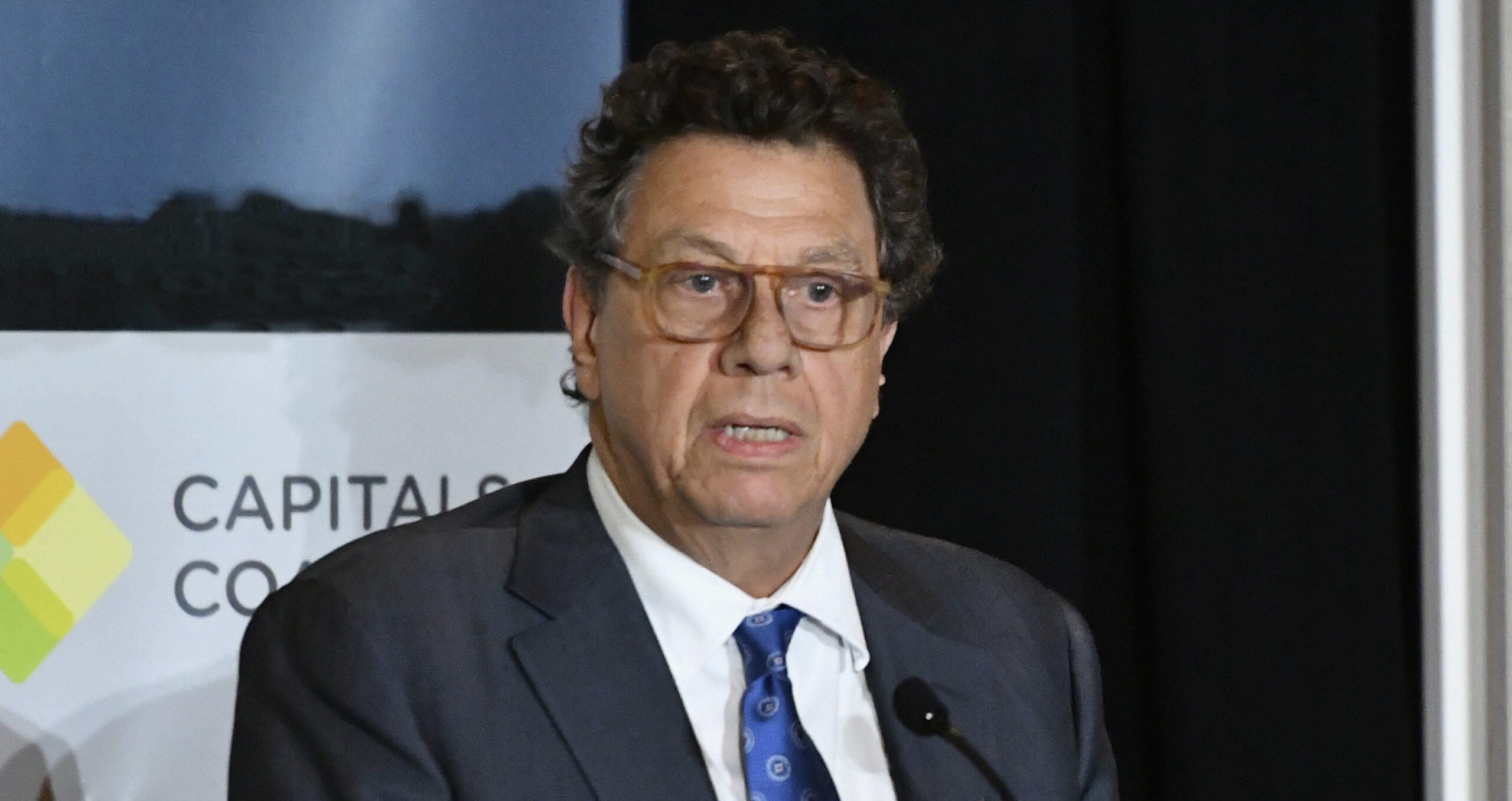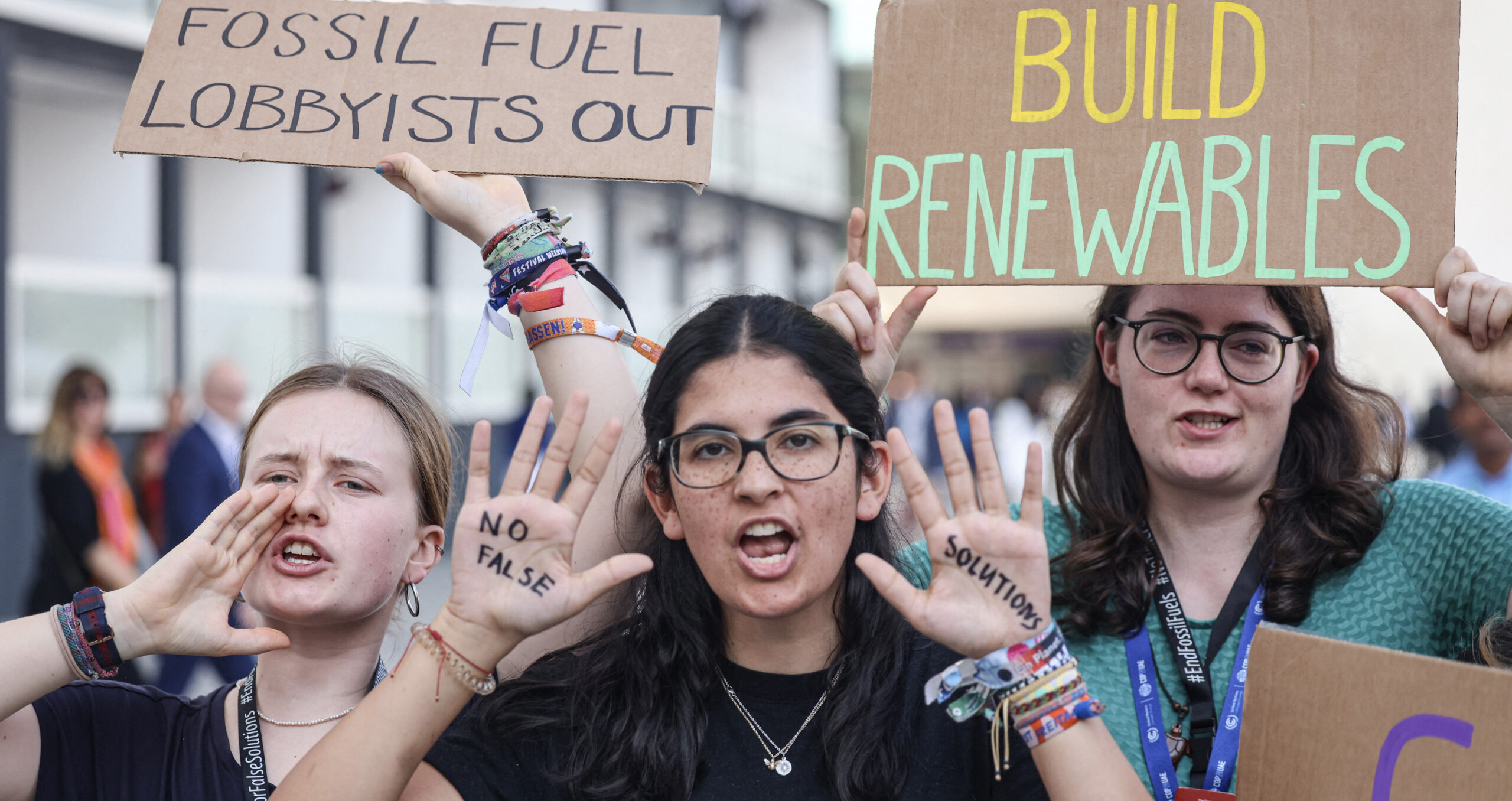
Investor data shows support for stronger green policy, says head of UK Labour’s climate forum

Paul McNamee tells Sustainable Views why he believes the Labour party can lead a green industrial revolution in the UK
Seventy-eight per cent of global investors believe Labour’s “green prosperity plan” would bring more opportunities than risk to UK businesses, reveals a survey by the newly created Labour Climate and Environment Forum.
“We didn’t expect it to be that high,” says LCEF director Paul McNamee, speaking to Sustainable Views ahead of the Labour party conference, which kicks off in Liverpool on Sunday. He hopes that part of the new organisation’s role will be helping to “empower” businesses and investors “to be a bit more confident to say that kind of stuff”.
The poll, conducted by Sustainable Views’ sister organisation FT Longitude on behalf of the LCEF, surveyed insurance and asset management investors and banks, and endowment, hedge fund and pension fund professionals from the UK, Canada, Australia and the US in July 2023.
Seventy-three per cent of respondents also said a government-led investment package in renewable resources would spur the same or more private sector investment. Forty-five per cent said they believed it would incite higher financing.
If elected in the next general election, shadow finance minister Rachel Reeves has pledged that a Labour government would implement a green prosperity plan that would, by the second half of the next parliament, reach £28bn a year in capital investment to support the UK’s transition to net zero.
‘Fleet of foot’
Set up 10 months ago, McNamee describes the LCEF as an “independent organisation outside of the movement, outside of the party”, comparing it to the Conservative Environment Network.
“[The CEN] was set up in a very similar way and is seen as having been a great success,” he says, despite the recent pushback on climate action from UK prime minister Rishi Sunak and other members of the Conservative government.
On the other hand, McNamee is keen to distinguish the LCEF from Sera, Labour’s official environment campaign body, whose executive committee includes various Labour councillors and MPs. “We are working really closely” with Sera, says McNamee, but suggests that as the LCEF is “not too closely affiliated with party politics”, the organisation can be a bit more “fleet of foot”.
“[The LCEF] isn’t member-led, it doesn’t have a constitutional role, it doesn’t have a policy platform that you sign up to,” he continues. “It can be a little bit more politically strategic and expedient in that way.”
For the moment, the LCEF is simply McNamee — who “worked for a number of Labour MPs, then went out into the NGO sector” and also spent two years with Sadiq Khan, the mayor of London, in the Greater London Authority — and his colleague Ruairidh Macintosh, who also works with FTSE 100 companies on accelerating the transition to net zero, supported by a handful of trustees.
Fine-tuning the narrative
The organisation plans to focus, for the moment, on “three strategic areas”. The first is the narrative on climate change in the Labour party and ensuing everyone is aware that climate and the environment are not just “nice to haves”, explains McNamee.
“The public gets this,” he says. “Even at the time of a cost of living crisis and global upheaval,” climate change still ranks as a key issue with British voters, he insists, but “we have to get that through to politicians and decision-makers”.
McNamee believes Labour leader Keir Starmer and Reeves also “get this and so it is about providing them with the cover, with the proof that they are not on the fringe when they say green growth is going to be part of our future”.
Second, the organisation will focus on “capacity and knowledge building”, he says. “On the left, we don’t really have [climate] deniers,” but Labour supporters sometimes need help to “make the link” and understand that issues that motivate them, such as local jobs or housing, “are now climate issues”.
The third strand to the LCEF’s bow should be convening different parts of the Labour movement and bringing them together to “build consensus” around climate and environmental issues, says McNamee.
Business engagement
“People are willing to change, but they need to not feel like they are being left out on a ledge,” he says. “They need leadership from government and business to assure them that systematic change is happening.”
“We are still exploring what LCEF’s business engagement might look like as a programme,” says McNamee, but suggests that “feedback over the past year” shows “business feels it is being heard by the Labour party and is engaged in conversations with them”.
Labour’s proposed GPP would bring the UK in line with where international winds are blowing, he suggests. Citing the Inflation Reduction Act in the US and the EU Green Deal, McNamee says the “global approach to economics is pivoting to green-centred industrial strategies”.
“A huge change is happening globally that the UK is not responding to,” he says, highlighting recent decisions by the Conservative government to slow down the transition. “We had such an advantage in this area that we are now pulling back on. Labour has been doing, and needs to continue, to identify opportunities around green prosperity.”
McNamee acknowledges the pushback across the EU and from many in the US on climate action and deep concerns about its potential costs. Nonetheless, he suggests that Labour is well positioned to lead “a green strategy as a central part of the economy”, given that the impetus is coming from the Treasury, rather than solely from a climate or environment shadow minister.
“Rachel Reeves wants to be the first female chancellor, but also the first green chancellor. We’ve never had that before,” he adds.
Similar Articles

‘No leakage’ structure to strengthen carbon markets, says Costa Rica’s environment minister

Youth on COP28: few women but an ‘overwhelming number of fossil fuel lobbyists’


